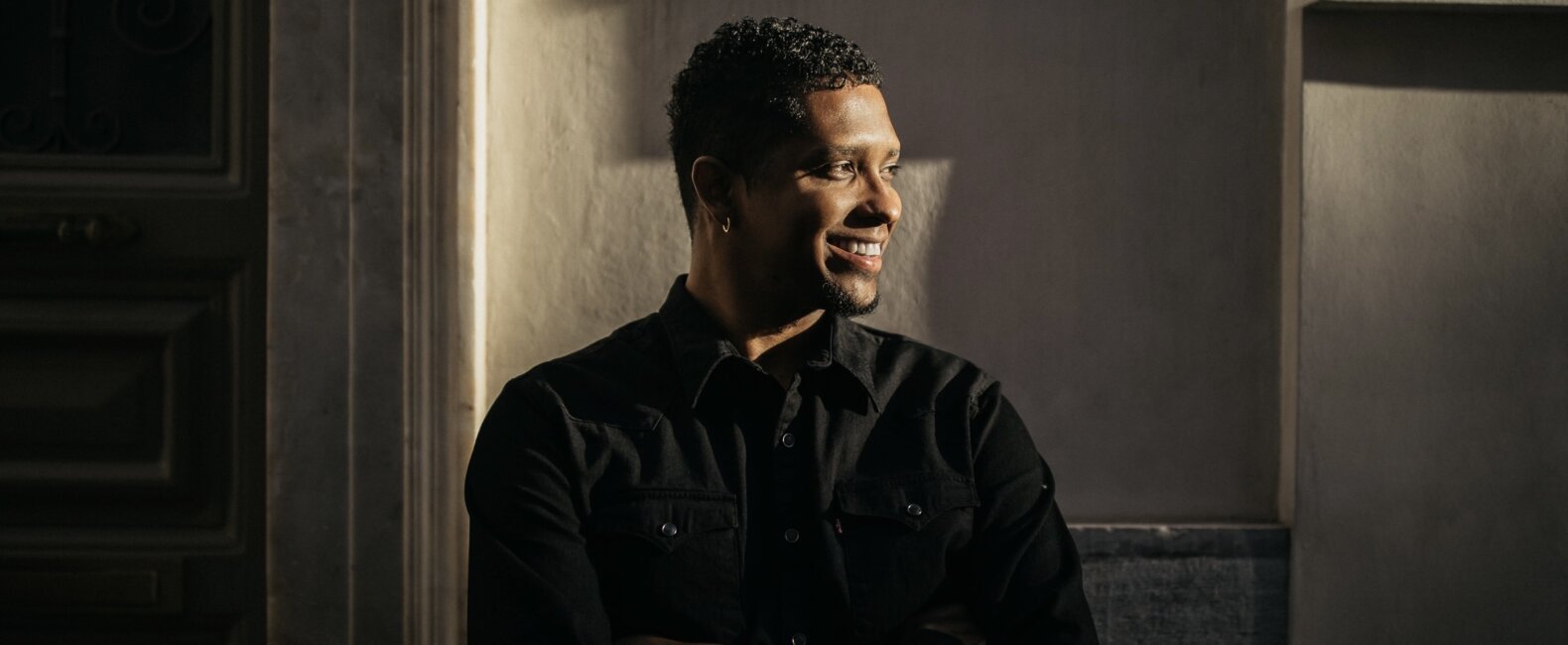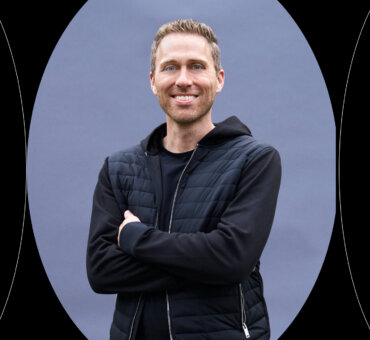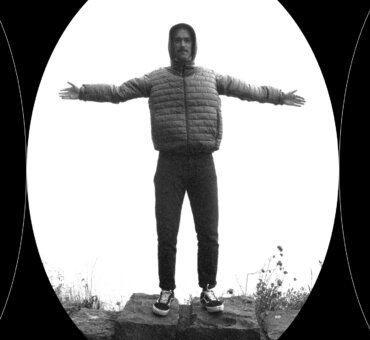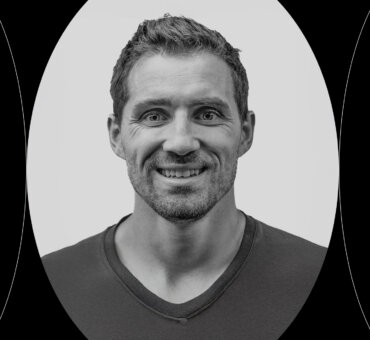When UK-based filmmaker/photographer Gione da Silva isn’t creating striking, original work for clients all around the globe, he’s teaching other filmmakers how to invest in their craft via his education courses. Hear more from the award-winning videographer on what keeps him inspired, and how he uses Musicbed to elevate his storytelling.
Musicbed: What sparked your passion for filmmaking/storytelling?
Gione da Silva: I’ve been in love with photography and cameras ever since I can remember being able to first purchase a camera. It was a natural thing because we always had photographs being taken with film cameras. I always found it very interesting how this little thing could freeze moments. It freaked me out how you could press a button and freeze time. However, I remember being little and watching and reading a lot of Westerns. I think my reading abilities developed a lot by just reading those stories (yes, I acknowledge that they weren’t age-appropriate but Brazil in the 80’s were a bit wilder!). I absolutely loved those gritty stories, the images that I created in my mind and later watched on TV, the colors, and how I could be transported reading and watching those films. I remember wanting to be part of it (I loved everything about Arizona!), trying to understand how somebody was killed in a film and suddenly appeared alive in another film! Haha… I honestly had no idea of the technique behind anything, I just remember believing in what I saw. If I could put it into one thing, my passion comes from believing, from being immersed by what I watched, and that many years later made me interested in exploring what was behind it all so I could get myself in the world.
What keeps you motivated and creatively inspired?
I believe that my motivation is something that changes a lot. It’s also something that evolves with me. Initially, I believe it was to cheer curiosity, the interest in knowing how things work (I have a mathematical mind too!). Then, at some point it was the need to make it work, trying to live from my art, from my films and photographs. At that stage, we just want to earn a living, and do whatever project is put in front of us. As we evolve, we start to understand things and have a better appreciation of beauty and the building blocks of image-making. That being said, I believe what really made a difference for me was family. Having a partner and children changes everything! We no longer work for ourselves. They are a constant source of motivation and always inspire me to do better and improve myself as a person and creative artist. On another sphere, it’s undeniable that we also get inspiration from the greats. Watching movies, browsing through photo magazines, attending art exhibitions, etc… all plays a big part in our creative development. I particularly love the work of some directors and directors of photography, such as Roger Deakins, Wes Anderson, Alejandro Iñárritu, David Lynch, and Gordon Willis. I also love abstract and conceptual photography, and draw a lot of inspiration from photographers such as Saul Leiter, Ernst Haas and Robert Frank. I like how these artists make mundane things look beautiful and interesting. Another source of inspiration is the work of painters such as Salvador Dali, Edward Hopper, and Caravaggio. They all taught me different facets of art. Dali shows that art has no boundaries and meaning is subjective, Hopper, the power of colors, mood, and self-expression, and Caravaggio, the power of light and shadows. Furthermore, I find calm, peace, and a lot of inspiration in music.
What makes a story visually appealing? What role does music play in storytelling?
Music can really set the tone for a project and help to open my mind when I feel stuck. I start most of my projects by choosing the music that I want to use. In fact, I play the footage while listening to some tracks and the decisive factor is always feelings. If that music makes me feel something, I question that emotion and if it is what I am aiming for or hope to elicit from the audience, then I will go with that. The same footage played over different tracks will have a completely different feeling and therefore, meaning! Hence music in storytelling has the power to portray meaning! Coming back to visual stories, I also link their appeal to the way the viewer interprets that image, the way the story makes them feel. On a simpler and external level, we know that the image needs to be well-composed, balanced, well-lit (lit with intention) and to be artistically colored. However, the power comes from how that story (and its elements) was created, how that story is presented (in the edit), the pace it is presented and linking from the above paragraph, how that story is linked with music. I’ve heard this somewhere but can’t remember exactly… and I think about this every time I shoot something: Your audience will experience the emotions you felt when you shot that image! So, be there, be present, feel the story!
What elements do you think are essential for crafting a compelling story?
I believe everything starts with people! You can’t have a compelling story without interesting, deep, and complex characters. And when I say people, I also include the personalization of animals, objects, and the inanimate. That is simply because as people, we connect with people! It’s science. The next level is to have a story/plot that is engaging, a cause or motif that grabs our attention, and the visual elements are used appropriately to bring each of those aspects to life in a way that the viewer feels emotionally attached to the story. Furthermore, when you combine light, environments, emotions, interpretations, and human interaction, poetry happens. Some of these elements can be manipulated, and the astute artist should do so! However, we also need to be sensitive to what happens around us and be open to allow for life. In my line of work, live events, we do better when we let life unveil in front of us.
How important is music in your work?
I believe that feeding yourself with beauty, inspirational content, and material that challenges your thinking, makes you a more inquisitive artist, always keen to explore and challenge the status quo. That is how I see the importance of music. You can only educate your music tastes and musical ear by listening and exploring music. Be eclectic, listen to everything! In fact, before anything in my creative journey, there was music! Everything started with music! Because I learned music, played in a band and still study my instrument, when I am picking music, I can really hone in on what I am looking for. I can pick by the key (and know what that particular key or motif brings), and I can look into beats, chorus, bridge, crescendos, etc… I believe this knowledge makes the selection much more informed. However, that is not essential. If somebody puts the right time in and sees music as an integral and vital part of the process, mastery is just around the corner!
What advice would you give other filmmakers/creators who are just starting their careers?
I would urge them to see this as a journey… Don’t think about where it will take you, nor worry about bypassing any steps. Enjoy the journey, make mistakes, and make many! Fail harder as the wise man would say! However, make sure you learn from those mistakes and above everything, enjoy every part of the process. Furthermore, learned to appreciate many forms of art and try to find inspiration in different mediums. Don’t become a filmmaker who only watches films. There is a wide, diverse, and dare I say, infinite world out there! Go out and explore it! Write, shoot, and create as much as you can! Those are the building blocks of mastery (as Gladwell would say) but… don’t aim for perfection… perfection is boring! On a more practical level, I also believe in the power of improvisation, however like a musician, to improvise, you need to learn the rules, and the patterns, and really practice a lot. David Lynch once said that ideas come from the world—look around and portray that. Those words could not be more true, as I often find the narratives that we create are just life in its raw state. You don’t have to fantasize about creating something special (although daydreaming is recommended!), you just need to be true to the event/story in front of you and apply your creativity.
How do you find the balance between pushing boundaries creatively and delivering what your client wants or audience wants to see?
I think it starts with self-reflection. Why am I doing this? What am I trying to achieve? What does success mean to me? How do I know I have achieved success (the goal) for this project? Answering those questions, I realized that going in, I am more of a conduit through which my clients’ vision can be realized. They hire me for my vision and creativity too but more than anything, I believe they want someone who can understand their needs, and vision and make sure that those come to realization. When I engage in a project and spend time learning about my clients’ needs (insert here, the external clients too, not only the paying client—I mean producers, designers, planners, etc…), I believe I deliver my best work. It’s about understanding my clients and what makes them tick. When it comes to my audience, this isn’t really something that I worry about as I believe I attract my audience and not the opposite. They will come to me for what I produce. In terms of balance, I see every project as an opportunity. May it be to connect with people, improve my career (move me forward), or make money. If I hit two of those, I am happy to compromise on the third (thanks to Ryan Booth for this mindset inspiration). Finally, a lot of what we see are trends. They come and go, hence it’s not worth ‘pushing’ those boundaries.
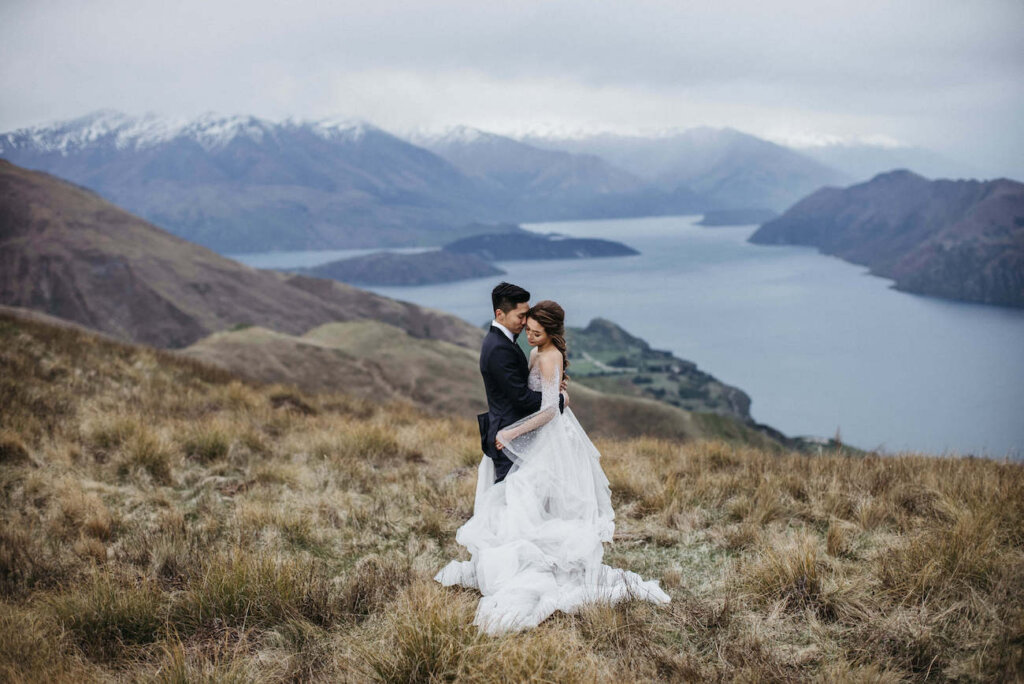
What is the most challenging aspect of being a filmmaker/creative?
I think creativity is not something that comes from inspiration or some form of divine given power that comes to you and transforms your being making you a powerful thing! It’s hard work! It’s sweating! Einstein was spot on! It’s transpiration. The most challenging aspect for me is to show up every day, try and try and not be sure that will be rewarded. Sometimes you spend hours on a project, searching for music, creating an edit, writing a paragraph, trying to come up with something different and ‘creative’ and you ‘fail’. It’s frustrating! There is no guarantee of success! There is a guarantee you will improve. That should be enough but we are all humans and we have more at stake. Sometimes the pressures of time, delivery constraints, and life challenges… all get in the way! And if you are in a bad spot and not fully committed, your creativity/work will suffer. I also find that expectations, although something that we should embrace, can also be a really challenging aspect to deal with. The constant pursuit to out-deliver on the previous project is a hard task. That all being said, I would not have it any other way. Very contradictory I know… but hey, I am an artist… we are contradictory beings!
What are some of your favorite projects you’ve worked on?
We have had the privilege to travel the world documenting and telling beautiful stories. Travel has always been a big part of our lives. We are incredibly thankful for the opportunities we have and to name only one would be unfair and not really true. However, among the projects we worked on was our incredible trip to China, where we documented what would be our first high-end event. We had the opportunity to explore and experience an incredible country and culture with people who were so kind and welcoming. This event has opened many doors to us. I am also very proud of having shot the wedding of someone who was one of my heroes when I started out. In fact, I started by watching one of her online classes. Years later, I received her email and was speechless. I could not believe it was this person, who I am now proud to call friends. On the same line of thought, I’ve had the chance to work with people I used to idolize in the commercial industry, being involved in big projects for brands such as Facebook/Meta and Four Seasons. Finally, more recently, having the chance to document an event for a famous Hollywood and Hong Kong star, is probably one of our highlights so far. And the most incredible thing is to find out these people come to us for what we do and want our work amongst all the amazing people out there. That is an incredible and humbling feat!
How do you search for music on Musicbed? What are some tips that you’d give other filmmakers to search on Musicbed?
One of the things I am always amazed by Musicbed is the variety and how easy it is to really just add a ton of keywords and have exactly what you are looking for. That is invaluable! I start my search by thinking about what sort of mood I want for my video. That will help me in choosing the mode (minor or major). Then, it’s about the vibe. Do I want something more upbeat and happy, do I want something more epic? Or do I want something more quirky? With those in mind, I just select some of those features and embark on my journey. As I start to listen to the tunes, if I find that there are too many songs that do not make me feel anything, I then refine the search, adding another parameter. Perhaps picking the instrument I want to feature on my tune: piano, cello, etc… As I am listening to these tunes, I start to mark them by adding them to a project. Anything that I find interesting, makes that list. Once I have about ten songs, I will stop the search and have a break, maybe leave it a day. Come back to it, this time playing every tune with the footage in the background. Pay attention to how each music makes you feel. What sort of reaction do they elicit? Pick 2-3 that align with your first intention and start editing! A major tip I would share is to not stay for too long. At some point, our brains get tired and we stop differentiating things. After 2-3 hours of searching, stop! Give yourself a break and start again. I can guarantee, some of the tunes you ruled will ‘sound’ completely different!
Why do you utilize Musicbed in your work?
Simply put, Musicbed has the best and most varied music out there! I can go in, type a few keywords, and really hone in on what I want for my films. I’ve been doing this for over ten years and have tried pretty much everything out there and honestly speaking, nothing comes close! I remember the old days of purchasing single songs and despite being a big investment, I felt it was worth the money! I really think great music can take a project to another level and the reason I swear by Musicbed is just that: it takes my projects to the next level! I am never embarrassed or worried about presenting a project to whoever that may be as I know the music will always make me look better—even better than I actually am! On top of that, I have always found the support from Musicbed second to none. The relationships I’ve built and the help I have had when searching for some specific tune is something that makes me not only trust but love Musicbed. Finally, I think Musicbed is made for artists by artists. That makes a huge difference. We are talking about people who have creative minds and can understand where we stand when we want to find that key piece of music to really make us shine and impress our clients. It’s the difference between coming in and leveling up but instead, actually outshining everybody!
—
Explore a curated playlist of Gione’s favorite songs to use in his films—all available to license on Musicbed.















































































